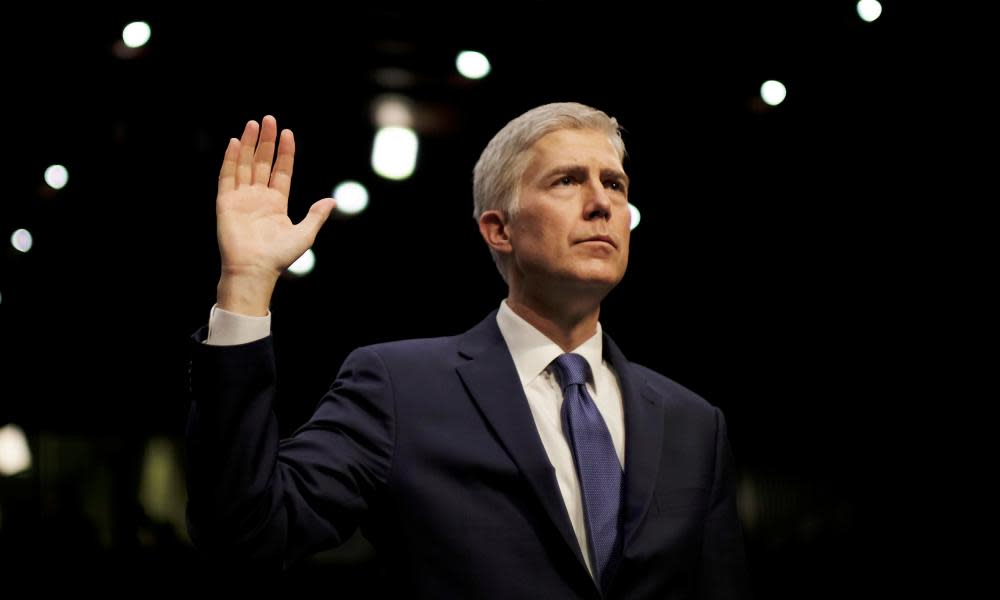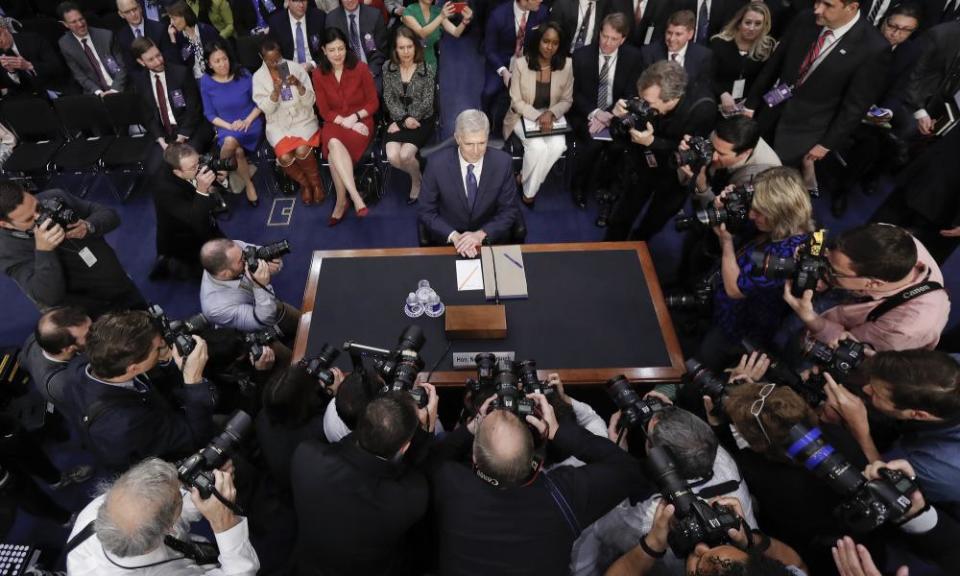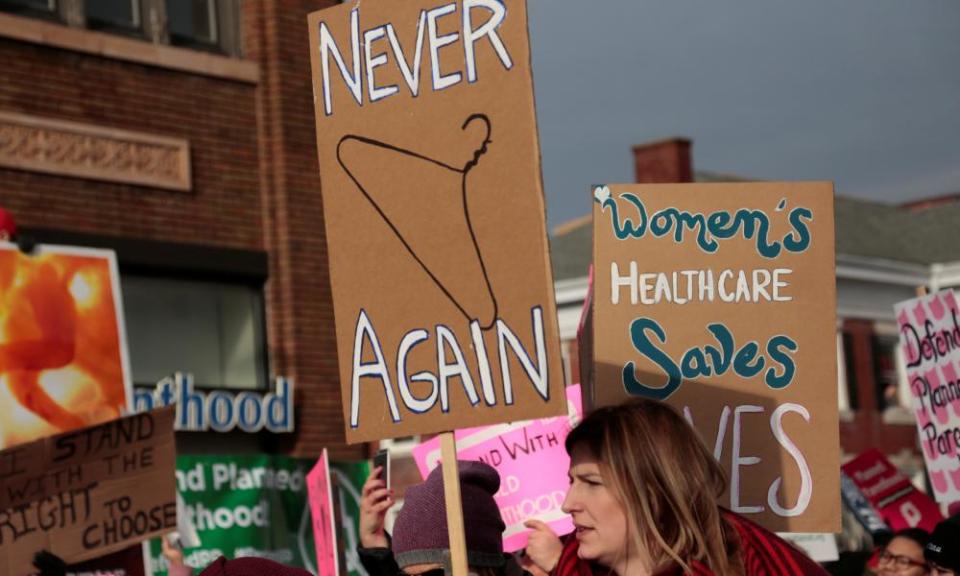Neil Gorsuch's views on abortion to be tested by supreme court filing

An urgent appeal to the supreme court by Planned Parenthood has created an unexpected early test of Justice Neil Gorsuch’s views on abortion restrictions.
The court’s newest member has never spoken publicly in any significant detail on one of the most divisive issues he will deal with as a justice, and he gave evasive answers about abortion during his confirmation hearing before the Senate.
But on Friday, Planned Parenthood challenged abortion restrictions before the court for the first time since Gorsuch joined the bench, effectively compelling him to weigh in.
At issue is whether a law preventing three Planned Parenthood clinics in Missouri from performing abortions should remain in effect while the group challenges the restriction in federal court. Planned Parenthood previously convinced a district judge to suspend the law, but on 15 September, the eighth circuit court of appeals stayed the judge’s decision.
Planned Parenthood has appealed the matter to the supreme court. The court’s decision, and Gorsuch’s position, is expected to be published in a matter of weeks – if Gorsuch doesn’t first weigh in by himself. Because procedural issues like this one are overseen by an individual justice, and Gorsuch is the justice with jurisdiction over the eighth circuit, the power to block Missouri’s law, leave it in place, or refer the matter to all nine justices initially belongs to him.
The final ruling should offer the first clue on how far to the right Gorsuch swings on abortion. Before nominating Gorsuch to replace the late Justice Antonin Scalia, Donald Trump repeatedly promised to name justices who would overturn Roe v Wade, the seminal case on abortion rights.
Few doubt that Gorsuch opposes Roe just as deeply as his predecessor. But he has never, in the 10 years he spent as an appeals court justice, ruled on an abortion rights case. And his silence on the matter has made it difficult to determine how his opposition will manifest while Roe is still the law of the land.

Answering Planned Parenthood’s appeal will not be as a simple as applying his legal beliefs about Roe, because the supreme court has already struck down an abortion restriction nearly identical to Missouri’s.
“I don’t think it’s hyperbolic or an exaggeration to say this could be the first time we hear from Gorsuch on abortion rights,” said Brigitte Amiri, a senior staff attorney at the ACLU’s Reproductive Freedom Project.
Should Gorsuch rule against Planned Parenthood, the group has the ability to appeal before the full supreme court. But whatever the court decides will shape abortion access in a part of the country where it is highly restricted.
For years, Missouri’s restrictions prevented all but one abortion provider, a Planned Parenthood clinic in St Louis, from operating. Planned Parenthood’s lawsuit has recently enabled a second clinic to offer the procedure in Kansas City. But tens of thousands of women are still without ready access.
Blocking the law would allow the Planned Parenthood clinic in Columbia, a college town in the center of the state, to resume performing abortions in a matter of weeks. Planned Parenthood clinics in Springfield and Joplin, which are not as far along in the licensing process, would offer abortion in the coming months. All three clinics would be able to stay open during the trial to determine the law’s fate.
The law is very similar to a Texas restriction the supreme court struck down in 2016. It requires abortion facilities to meet the same requirements as the hospital-like buildings where doctors perform outpatient surgery, and it requires abortion providers to have staff privileges at a hospital within 30 miles of the clinic.
Missouri claims the law is a safety measure. But Planned Parenthood argues the law is designed to make abortion inaccessible with medically unnecessary restrictions.
“Patients shouldn’t have to drive hundreds of miles across the state, and risk their jobs and financial well-being in order to access abortion,” said Aaron Samulcek, the interim president of Planned Parenthood Great Plains.

That’s what happened to Ally, 25, when she was an undergraduate at the University of Missouri. “It was so stressful trying to not only get this procedure but also planning to get there,” she told the Guardian this week.
Because Missouri also requires women to wait 72 hours between an initial appointment and the abortion itself, Ally and her partner made the trip twice. She skipped three days of classes and several shifts at her retail job, leaving her with $50 in her bank account. She cut back on groceries for weeks afterward.
“I wouldn’t have had to make those financial decisions” if she had been allowed to have her abortion in Columbia, Ally said. At the time, she was also writing her senior thesis. “I would have had more time to focus on school, myself, my life.”
Gorsuch’s doctoral dissertation, on assisted suicide, is a thundering denunciation of “the intentional taking of human life”. And he is an adherent of originalism, the idea that courts should interpret the constitution according to the meaning it had when it was enacted.
“A conservative who believes in originalism thinks Roe v Wade is one of the worst decisions ever decided,” David Cohen, a Drexel University law professor and board member of the Abortion Care Network, told the Guardian.

 Yahoo News
Yahoo News 
